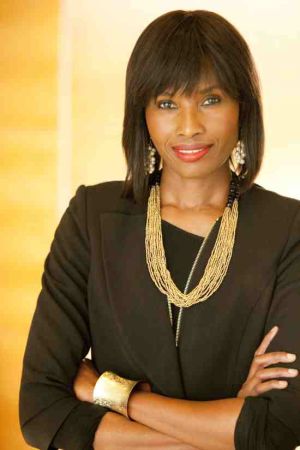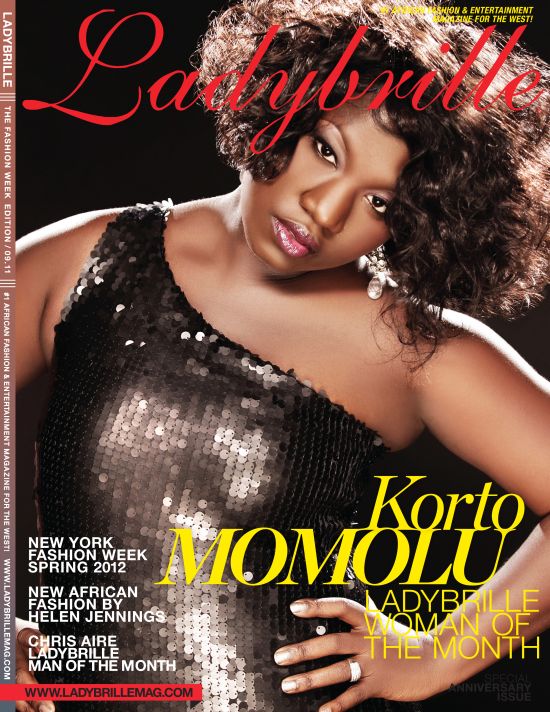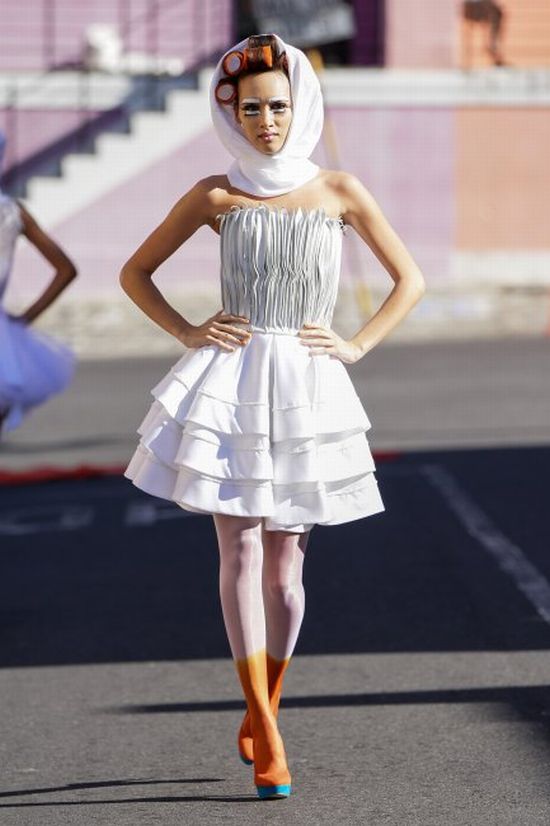My legal colleague, Tracy Agyemang, who is of Ghanaian heritage and a trial lawyer with the US Department of Labor, was a panelist at the panel “Violations En Vogue? Employment and Labor Laws Concerning Fashion Models and Interns” in New York City. When she shared the news of her upcoming event in a group we both belong to, I asked that she share/provide the post event information so I could share with you all that will aid you as you operate your fashion businesses. Please check out her summary of the event in her write up below.
-Uduak Oduok
______________________________________________
On Tuesday, (February 12th, 2013) in collaboration with The Model Alliance, the Entertainment Arts & Sports Law Section’s Fashion Law Committee of the New York State bar association hosted a program entitled “Violations En Vogue? Employment and Labor Laws Concerning Fashion Models and Interns.” Divided into two panels, fashion lawyers and industry insiders explained the labor and employment issues specific to fashion models and to interns.
The Death of the Gopher
Given the fierce competition for positions in the fashion industry, talented young professionals compete madly for plum internship positions at the leading fashion-design houses and related fashion companies. The use of interns is just as widespread in fashion as it is in any other industry but some argue that unpaid internships in the fashion industry are more likely to run afoul of labor laws.
Unpaid internships in the “for profit” sector must meet six criteria under U.S. Department of Labor guidelines. In sum, the law requires that an unpaid internship benefit the intern and be primarily educational in nature. Where the DOL criteria is not met, the employer must pay the “intern” the federal minimum wage and overtime for any work performed in excess of 40 hours per week.
So are the days of the “gopher” numbered? (as in “hey intern! GO to Starbucks FOR my vanilla latte! “) And who would a gopher extinction benefit? Noted author Ross Perlin, “Intern Nation”, appeared on a panel of fashion lawyers, academics, and industry insiders to argue that the exponential increase in the number of unpaid internships benefits only those who can afford to “pay to play.” Explaining that since unpaid interns are not considered employees under state and federal employment laws, Perlin argued that workplace protections are not applicable. He noted that this is especially troubling since most unpaid interns are women. Not to mention, Perlin added, unpaid internships are not without costs. Living expenses, for example, must be absorbed by the intern herself, resulting in cash-poor talented candidates self-selecting themselves out of internships. Thereby missing out on the networking and exposure opportunities of these internships simply because they cannot afford to work for free. Gary Friedman, a management-side employment litigation partner at Weil, Gotshal, & Manges LLP responded stating the DOL guidelines were already overly, paternalistic and create an unrealistic criteria which discourages employers from offering valuable employment experience to students and others looking to gain work experience.
Independence: Modeling Agencies Don’t Walk the Walk
Tuesday night’s discussion then turned to another key fashion- industry player: What workplace protections are available to fashion models? A panel of fashion industry stakeholders including talent agent, Barbara Coleman, casting director, Jennifer Starr, and a bevy of current and former models, and fashion lawyers explained the status of the fashion model as an independent contractor and the consequences of that designation for adult models, child models working as children, and child models working as adults. The most problematic designations being those that fail to ensure that state and federal laws protecting children from working during school hours and limiting working hours during the school hours are followed.
Explaining that the status of a fashion model as an independent contractor under the law will not be determined by the terms of the fashion model’s contract but instead by the “economic realities” of relationship, Doreen Small, former counsel for Ford Models and current professor of Fashion Modeling law at Fordham Law School and Tracy Agyemang, a Trial Lawyer with the U.S. Department of Labor and a fashion model, offered real-life examples of when the relationship between a model and her agency becomes more akin to an employment relationship than a contractual relationship. Sara Ziff, founder of Model Alliance, an organization dedicated to providing a voice to models & raising awareness of the employment abuses models routinely suffer, passionately explained that child models working as adults are frequently subject to sexual harassment, molestation, and workplace violations that go ignored because of their status as independent contractors. What is a child model working as an adult? Just take a look at any of the NY Fashion Week runways. Models as young as 14 years-old walk the runway for designers whose clothing are marketed to women in their 30’s and older.
The pre-pubescent physique of these adolescents add to their marketability as malleable canvases for certain designers who eschew the natural curves women develop post puberty. The desire for this aesthetic, Ziff explains, encourages eating disorders and life-long self-esteem issues in young models who in one season can go from the “it” girl to persona non grata simply because she underwent the natural process of puberty. A clip from Ziff’s film, “Picture Me” was played, offering a sobering depiction of these abuses. Casting director, Jennifer Starr, who casts for industry giants such as Ralph Lauren, lauded the Council for Fashion Designers of America (CDFA) for offering guidelines that have caused the industry to become aware of the negative impact of these practices. Moderator, Paula Viola an Associate with Paul Weiss, closed the panel on a positive note, asking each panelist to share a prescription for helping to alleviate some of the issues addressed. Suggestions included admonishments to modeling agencies to actively engage the DOL criteria and to change the classification of their models from independent contractors to employees. Small suggested that fashion model advocates highlight the abuses suffered by child models as the vehicle for raising awareness to curb the abuses suffered by fashion models in general.
Issues pertaining to the fashion interns and models are often “En vogue” during Fashion Week. However, it will take a concerted and sustained effort by advocates such as Ziff, to ensure that interns and fashion models are afforded the workplace protections that the fashion industry has, perhaps inadvertently, ignored.
-by Tracy Agyemang
Byline: Ms. TracyAgyemang is a trial attorney with the United States Department of Labor where her role is to litigate matters on behalf of the Secretary of labor.
Disclaimer: “the statements herein are the opinions of the author and do not reflect the opinions or position of the U.S. Department of Labor.”
Ms. Uduak is best known as an advocate who uses the tools of media and the law to help creatives and businesses clearly articulate their true brand identities, and communicate it to the world through their products and services, to maximize profits. She is a lawyer, speaker, author, journalist, and recognized thought leader, and trailblazer for her work on Africa’s emerging global fashion and entertainment markets, and the niche practice of fashion law in the United States. She is also the founder and publisher of Ladybrille® Magazine, and an Attorney and Partner at Ebitu Law Group, P.C, where her practice focuses on Fashion, Business, & Entertainment Law and Trials. For more information about her, visit www.msuduak.com.








